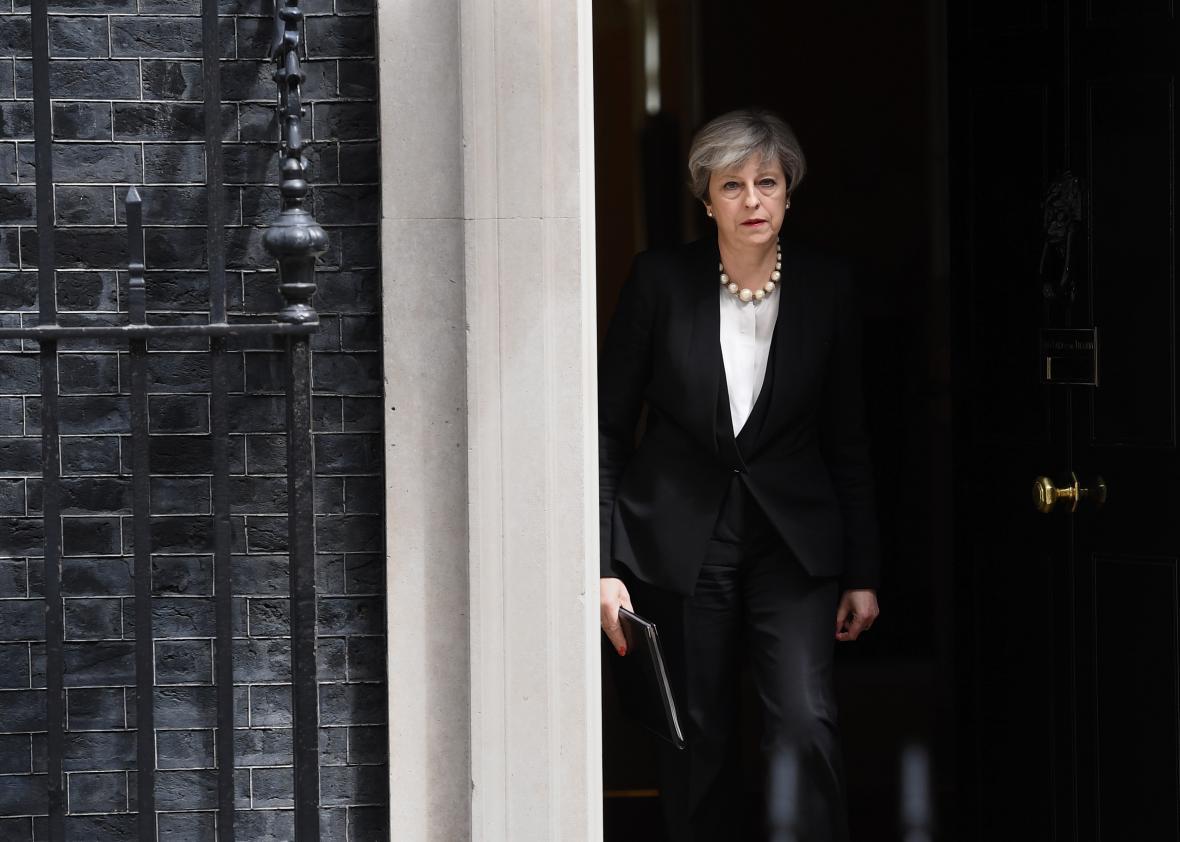Britain’s political parties halted campaigning after Monday’s bombing in Manchester, but all of them will have to grapple with the horrifying event in the remaining weeks before a closely watched election on June 8. Prime Minister Theresa May called for the snap election in April, hoping to capitalize on her own popularity and the disarray of the opposition Labour Party to build her majority in Parliament and strengthen her hand in negotiations over Britain’s exit from the European Union.
While May’s Conservatives are still expected to win, the election is still a gamble, and recent polls had been tightening. The conventional wisdom is that terrorist attacks immediately preceding elections benefit the right and candidates with more hawkish national security policies, and that’s likely to be the case here. Conservatives had already argued that a victory by Labour leader Jeremy Corbyn—a dovish leftist who has said positive things about Hamas and Hezbollah—would increase the risk of a terrorist attack. While Corbyn is personally pretty unpopular with voters, Labour’s new populist economic message, which includes scrapping tuition fees and renationalizing energy companies, has gotten some traction. We still don’t know much about the perpetrator and motives behind the attack (ISIS has claimed responsibility), but an event that puts the focus back on issues like terrorism, radicalization, and—perhaps—immigration will likely benefit the Conservatives, who sell themselves as the defenders of Britain’s border security, national sovereignty, and cultural identity.
But the impact is also likely to be limited. For one thing, responding to terrorism has not been May’s strong suit. A proposed bill on countering extremism that she’s been pushing since she was home secretary in 2015 is reportedly close to being shelved amid concerns that it’s too vague in defining terms like extremism and British values.
The national mood over terrorism seems not to be dominated by fear. Such concerns certainly played a role in the successful Leave campaign in last year’s Brexit referendum, but it wasn’t the most salient issue for voters. Fifty percent said leaving the EU would make no difference in the risk of future terrorist attacks in Britain, and only 6 percent cited national security as the main reason for their leave votes.
To some extent, the British public may have already accepted the risk of a major terrorist attack. A poll last summer found that 84 percent of Britons believed another attack on one of the country’s cities was likely, but only 43 percent believed the government should do more to combat extremism; 32 percent thought it was doing as much as could be expected. Obviously, a recent attack as horrifying as the one in Manchester is likely to increase those numbers, but unfortunately, tragedies like these are no longer unexpected
